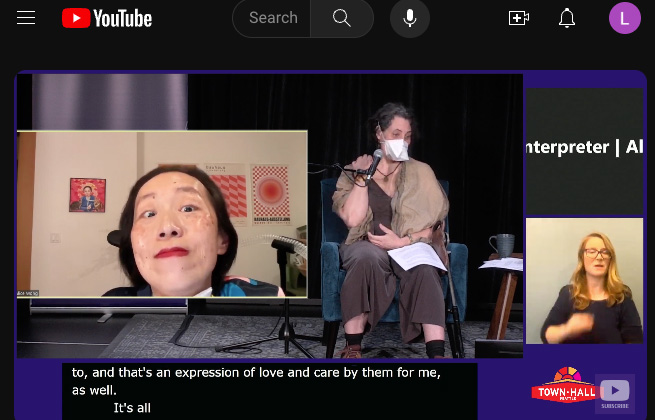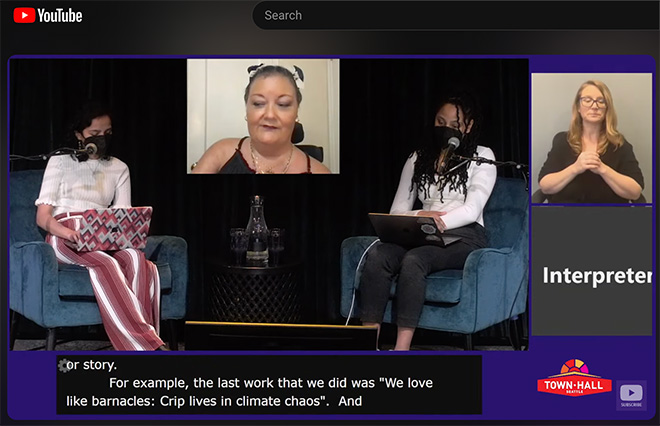January 29, 2024
Winter 2024 quarter kicked off with two outstanding conversations with women of color who are leaders in disability justice.
Alice Wong: Raising the visibility of disabled people
First, Alice Wong discussed topics important to her work in raising the visibility of disabled people. Wong’s book Year of the Tiger: An Activist’s Life was the topic of the Autumn 2023 CREATE Accessibility Seminar.
CREATE Director Jennifer Mankoff started the conversation asking Wong about her experience as a disabled person in academia and what needs to change. Wong said her work in disability justice was inspired in part by the “incredible amount of emotion and physical labor to ask for equal access” in academic settings. She had to spend precious time, money and energy to gain the accommodations and access she needed to succeed. But she realized that as soon as she transitioned out, her efforts would be lost and the next student would have to start over to prove their need and request a new set of accommodations. Wong was doubtful that large academic institutions can support the goal of collective liberation. It’s the “dog-eat-dog world [of] academia where the competition is stiff and everyone is pushed to their limits to produce and be valuable.” She encouraged instructors to incorporate books about disability justice in their syllabi (see the reading list below).
Wong, who spoke with a text-to-voice tool and added emphasis with her facial expressions on the screen, also addressed the value and the limitations of assistive technology. She noted that the text-to-speech app she uses does not convey her personality. She also discussed how ableism appears in activist discourse.

One of her examples was a debate over gig economy delivery services, which are enormously important for many people with disabilities and that also under-compensate delivery work. She noted that blaming disabled people for undermining efforts for better wages was not the solution; collective efforts to make corporations compensate workers is the solution. She also explained that hashtag activism, which has been disparaged in popular discourse, is a crucial method for disabled people to participate in social justice activism. And she discussed her outrage when, as she prepared to give a talk to a public health school, her own access needs were used to censor her. Throughout her talk, Wong returned again and again to the principles of disability justice, and encouraged attendees to engage in collective forms of change.
Wong’s responses embodied a key component of disability justice principles: citational practices that name fellow contributors to collective disability justice wisdom. Her long list of recommended reading for the audience inspired us to build our new RDT reading list. Wong referenced Patty Berne several times, calling Berne her introduction to disability justice.
Patty Berne on disability justice: Centering intersectionality and liberation
A week later, two CREATE Ph.D. students, Aashaka Desai and Aaleyah Lewis, moderated a conversation with Patty Berne. Berne, who identifies as a Japanese-Haitian queer disabled woman, co-founded Sins Invalid, a disability justice-based arts project focusing on disabled artists of color and queer and gender non-conforming artists with disabilities. Berne defined disability justice as advocating for each other, understanding access needs, and normalizing those needs. On the topic of climate justice, she noted that state-sponsored disaster planning often overlooks the needs of people with motor impairments or life-sustaining medical equipment. This is where intersectional communities do, and should, take care of each other when disaster strikes.
Berne addressed language justice within the disability community, noting that “we don’t ‘language’ like able-bodied people.” For example, the use of ventilators and augmented speech technology change the cadence of speech. Berne wants to normalize access needs for a more inclusive experience of everyday life. Watch the full conversation on YouTube.
